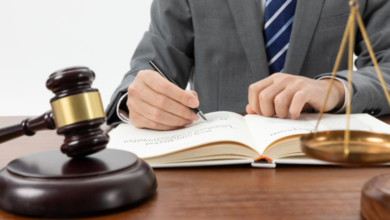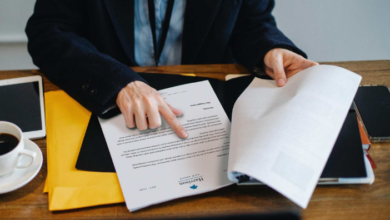The Impacts of Institutional Abuse: When to Seek Legal Help

Institutional abuse is a harrowing reality that many individuals have faced, leaving behind scars that go far deeper than the physical. Whether it occurs in schools, care homes, or other institutions, the effects of such abuse can be long-lasting and devastating. But how do you know when it’s time to seek legal help? Understanding the impacts and recognising the signs can be key to finding the justice you deserve.
If you’ve been affected by institutional abuse, seeking support from a trusted law firm specialising in these cases is crucial. The decision to take legal action can be life-changing for you and others who may still be vulnerable.
Key Takeaways
- Institutional abuse can have long-lasting emotional, physical, and social impacts on survivors.
- Seeking legal help early can ensure justice is served and prevent further harm to others.
- Experienced legal professionals can guide you through the legal process with empathy and expertise.
- There are time limits for filing institutional abuse claims, so don’t delay.
- A trusted law firm like Conrad Curry Law can support you for a successful claim.
Key Impacts of Institutional Abuse
Emotional and Psychological Impact
Institutional abuse often leaves emotional scars that can last a lifetime. Survivors may experience post-traumatic stress disorder (PTSD), anxiety, depression, and difficulty trusting others. The mental health toll can be overwhelming, making it hard to engage in everyday activities or maintain relationships.
Victims of abuse often face a paradox of isolation despite being surrounded by others in the institution, they may feel utterly alone in their experience. This isolation can make it even harder to seek help. If you’ve ever felt like you’re the only one fighting the battle in your mind, you are not. The emotional impact of abuse is real and should not be downplayed.
“Healing from institutional abuse is like trying to clean a wound that’s hidden under layers of emotional bandages slow and painful, but possible.”
Physical Effects
The physical effects of abuse can range from immediate harm, such as bruises and broken bones, to long-term health consequences that develop over time. Victims might suffer from chronic pain, difficulty sleeping, or stress-related illnesses. In some cases, the abuse leads to permanent disability or lifelong health issues.
What makes institutional abuse particularly sinister is that victims are often denied proper medical treatment or support, leaving their injuries to worsen. If you’ve been physically harmed by institutional abuse, it’s vital to document the injuries and seek medical attention as soon as possible, not just for your health but also for legal reasons.
Recognising When to Seek Legal Help
Signs It’s Time to Seek Legal Help
Clearly, it’s time to stop battling alone and seek legal advice. These include:
- Emotional and mental distress: If you’re unable to move forward in life due to the trauma of abuse, legal help can provide both closure and compensation for therapy.
- Physical harm: Ongoing pain or permanent injury from the abuse should not be ignored. You deserve compensation for any lasting damage.
- Institutional negligence: If an institution ignores complaints, turns a blind eye, or fails to protect you from harm, it must be held accountable.
The Role of a Lawyer in Institutional Abuse Cases
When you’ve been through something as traumatic as institutional abuse, navigating the legal system might be the last thing on your mind. However, a lawyer experienced in institutional abuse cases will handle the heavy lifting for you. They will:
- Help you gather evidence and testimonies.
- File your claim within the necessary time limits.
- Negotiate with the institution or represent you in court.
Choosing the right lawyer can be the difference between success and further frustration. That’s why working with a trusted law firm like conradcurrylaw.com.au is so important they have the expertise and sensitivity needed for such cases.
The Legal Process for Institutional Abuse Claims
Step-by-Step Process
Here’s how the legal process typically unfolds:
- Initial consultation: You’ll meet with a lawyer who specialises in institutional abuse to discuss your case.
- Evidence gathering: Your legal team will help you gather all necessary documentation, from medical records to personal testimonies.
- Filing the claim: Your lawyer will formally file your claim with the appropriate legal body.
- Negotiation or court proceedings: Depending on the response from the institution, your case may be settled out of court or proceed to trial.
Importance of Choosing the Right Lawyer
Not every lawyer is equipped to handle institutional abuse cases. You need someone who not only understands the legal process but also recognises the emotional toll this experience has had on you. Conrad Curry Law has years of experience in handling sensitive institutional abuse cases and is well-positioned to guide you through the process with care and professionalism.
Benefits of Seeking Legal Help for Institutional Abuse
If you’re on the fence about whether to take legal action, here are some key benefits:
- Access to justice: Holding institutions accountable can bring a sense of closure.
- Compensation: Financial compensation for medical expenses, therapy, and lost wages.
- Validation: Having your experience legally acknowledged can be a powerful step in the healing process.
- Systemic change: Your case could lead to changes that prevent further abuse within the institution.
(Besides, who wouldn’t want to see justice served? Think of it as a long-overdue karmic payback for those responsible.)
Long-Term Support and Healing
Legal and Emotional Recovery
Legal action is only one step in the journey towards recovery, but it can be a major one. Many survivors find that holding their abusers accountable helps them emotionally heal. Seeing justice served can be validating and empowering, especially when you’ve felt powerless.
Support Networks
Beyond legal help, there are several support networks available for survivors of institutional abuse in Australia. These include counselling services, survivor groups, and hotlines that provide emotional support and resources. Healing is a long road, but with the right support, it’s entirely possible.
Conclusion
The impacts of institutional abuse are profound and often long-lasting, but you don’t have to face them alone. Whether you’re dealing with emotional trauma, physical injuries, or the aftermath of an institution’s failure to protect you, legal help is available. By seeking assistance from Conrad Curry Law, a trusted law firm, you can start the healing process legally and emotionally.
If you or someone you know has been affected by institutional abuse, now is the time to take action. Contact Conrad Curry Law today for a consultation and begin your journey towards justice and recovery.



